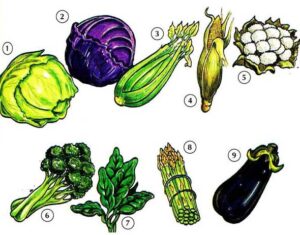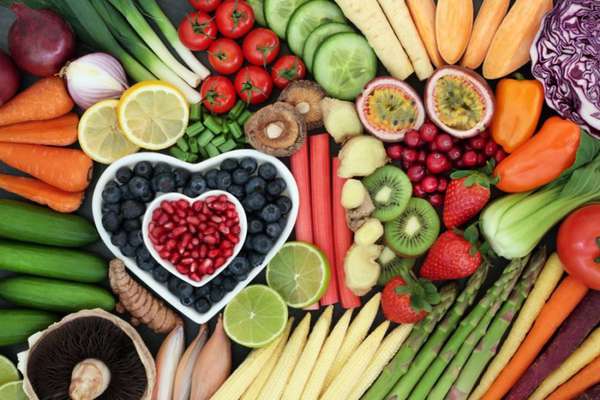Monsoon Diet: What to Eat and Not to eat?
As the scorching heat has already gone, the drizzling showers of monsoon are drenching your body now. In such a lovely and sexy season our mind starts to tremble to get drenched in the rain and we yearn why not the spicy food tastes. Today we will talk about what should be your monsoon diet to eat, what not to eat during this rainy season so that YOU remain healthy and fit, and similarly enjoy the season.
What to eat and drink in this season?
During this season, we see that due to the rain all around and the sun does not come out, many types of bacteria and viruses are produced in the atmosphere. At this time, the effect of these bacteria is seen in roadside foods. If we eat stale and outside street food, then they directly attack our bodies.
We should also understand how harmful bacteria can infect our health in this rainy season. In this season, there is intermittent rain all around and the sun is almost visible most of the time. Therefore, many types of bacteria and viruses, bacteria, and germs begin to grow in the environment which directly attacks our body, if we eat stale and outside street food. We should also understand that in this rainy season the harmful bacteria are produced which are harmful to us.
Therefore, at this time our motto should be eating fresh and hot foods so that our immune system remains strong and we stay away from seasonal flu, fever, and stomach diseases.

That’s why your monsoon diet should include fresh and nutritious food and avoid such foods that are prepared for a long time, because they may contain bacteria and other micro-organisms. In the monsoon season, the outbreak of mosquitoes also increases, so due to which the risk of diseases like dengue, Chikungunya, and typhoid are also high so do not take the gamble on your health.
Always focus on Fresh Foods & Hot Drinks
There are some foods that you can include in your regular diet. Apart from this, you must take some seasonal fruits, hot drinks and vegetables, and nuts so that you stay fit and fine.
Foods to eat
At the breakfast time, you should prefer light and digestible food such as Porridge, Khichdi, Idly and Sambhar, Cheela, and Uttapam these are healthy and easily digestible foods also not too spicy. Therefore, eat fresh fewer oily foods in the rainy season, avoid stale food.
You can take hot rice, lentils, and Chapati, vegetables, and buttermilk in the day’s meal, at this time, food containing more fried and spicy should be avoided. In the rainy season, we should consume more vegetables containing Vitamin C and K. Zinc-rich foods are also advisable in this season.

Always prefer to drink Clean Water
Most of us have a habit of rushing to the kitchen and drinking water in a hurry, which we should avoid in this rainy season. At this time we know that bacteria and bacteria are produced more and contaminate the tap water, so we should consume RO water or pitcher water and not direct tap. If possible, put some basil leaves in your water storage and then use them.
Soups and Herbal Tea
At this time you should drink plenty of water so that the body’s hydration level remains fine, freshly made decoction, herbal tea or lemon tea can also be taken. Those who are vegan can make hot soup in their diet. Those who are non-vegetarian can make chicken soup, broth. These drinks strengthen your immune system and also maintain the pH level of the body. Warm fluids detoxify your body, keeping you healthy.

Vegetables to eat
Even in the time of the monsoon, our nature has given various types of green vegetables which are favorable to our health. For this season we get Gourds, Pumpkins, Bitter gourd, Okra, Beans, Cucumber, Luffa, Maize (Corns), and other types of green vegetables. You must consume them to amplify your intestine’s working process. These vegetables have ample amounts of vitamins, minerals, and fibers for your healthy body. They boost your immune system, help maintain an easy metabolism process.
Fruits
We get different types of fruits in this changing season like Apple, Plum, Berries, Jamun (Blueberry), Pears (Babugosha, Nashpati), Papaya, and Pomegranate, which we must include in our diet so that we get daily vitamins, minerals, fiber, and antioxidants. By consuming it, our digestive system will be working fine and our immunity also gets maintained.
Spices
During the monsoon season, there is moisture in the atmosphere and micro-organisms are also in the air so we must take care of our eatables.
An optimum amount of spice can be added to our diet because they have numerous health benefits. Turmeric, Coriander, Cumin, Ginger, Cinnamon, and Cardamom should be used especially in these spices, which are rich in anti-inflammatory, antiviral, antifungal, and antimicrobial properties. The regular use of these spices will protect our health from seasonal diseases and promote gut health. It will also improve our immunity level to fight bacteria and viruses.
Nuts and Seeds
We must include nuts and seeds in our diet in this season. These are loaded with vitamins, minerals, antioxidants, and healthy fats. They protect us from so many diseases and also they maintain our mental and physical health in this changing season. We shall always keep some nuts and seeds.
We should also keep such nuts and seeds with us regularly when we are out of our work in the office, then we can eat it in evening snacks, which can be a good option of a healthy snack.
What to avoid eating during the monsoon season?
Avoid eating outside
It should be our first effort in the rainy or rather monsoon season that we should not eat outside things and avoid eating in Dhabas or restaurants where there is no cleanliness. In the rainy season, samosas and pakoras are everyone’s favorite, and people tend to eat too much excitement, the result of which can prove to be terrible. Therefore, it is better if you save yourself a little by eating such food.
Till now we have not completely recovered from an epidemic (Covid-19), so we should keep this in mind. Bacterial and fungal growth is rapid in this season that’s why the risk of various diseases increases a bit. So eat homemade food and be assured that the food is hot.

Say “NO” to fried/oily foods
At this time, you have to keep fried foods at the absolute limits so that your health remains fine and your digestive system is correct. These days, people start complaining of stomach upset like diarrhea, dysentery, dyspepsia, and vomiting more and they go out to the doctors. So you can eat roasted things in sufficient quantity and try to avoid it.
Avoid leafy vegetables
Generally, we tend to hear from our elders and doctors that we should include striped air green vegetables in our daily diet. But, It is observed that during this rainy season, insects make their breeding grounds in these green and striped vegetables. The humidity makes the perfect place for germs breeding in Cruciferous plants. So, it would be better to avoid such vegetables. So, we must make the distance for some time with some of these leafy vegetables.

Mosquito breeding is high where they produce their eggs and larvae on the leaves of these vegetables, which prove to be very dangerous for our health. You need to avoid eating Brinjal, Broccoli, Mushrooms, Cauliflower, Cabbage, and Spinach. These vegetables are leafy and knotty, which belong to the Cruciferous family. At this time these vegetables are loaded with small germs so keep away from these vegetables till the season changes.
*If you cannot avoid under some circumstances, then you must rinse them well and boil for 10 minutes before use.
Put a break on seafood in your monsoon diet
Sometimes, it would be better to avoid seafood like fish, prawns, etc. Because in the monsoon season the risk of water contamination is very high and that leads to infections. So we should avoid eating them during the monsoon.
Tips: Try to do yoga / light exercise at your home. Do pranayama and Suryanamskar it helps keep you energized the whole day. Suryanamaskar (Sun salutation) keeps your body fit and healthy. It is a panacea for the heart, apart from this it gives a lot of strength to the bones and nervous system, so in this season you should take a nutritious diet, drink plenty of clean water and do exercise.

